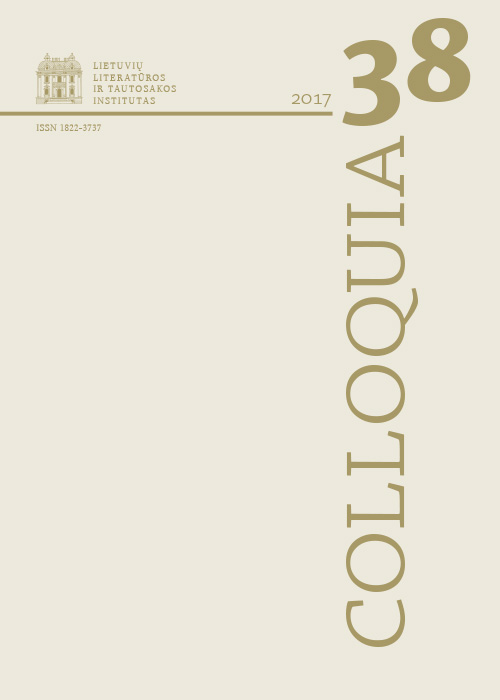Vytautas Kubilius: aktualioji tarybmečio hermeneutika
Santrauka
Išsivadavimas iš sovietinės okupacijos žymi esminį pokytį visuomenės gyvenime ir kultūros raidoje. Neišvengiamai kyla poreikis susikurti aiškesnį nugyventos tarybinės praeities vaizdinį. Vienoks jis gyvenusių ir veikusių anais metais, kitoks – negyvenusių ir tą vaizdinį bandančių susikurti skaitant literatūrinius bei kitokius tekstus ir, pasitelkus vienokias ar kitokias teorines prieigas, gilinantis į istorinio vyksmo aplinkybes. Prisimindami ar įsivaizduodami praeitį vienaip ar kitaip savuoju gyvenimo ir praeities suvokimu matuojame ir kitų pasakojamas istorijas, prisiminimus, taip pat ir mokslinius veikalus bei kitokius kūrinius. Iš atminties iškeltas ar mokslinių tyrimų pagrindu suvaizduotas prasmes deriname su savosiomis. Praeities iškėlimas ir jos „išrašymas“, juolab stengiantis nuo jos atsiriboti, neišvengiamai atveria svarbią etinę prisiminimo ir apskritai istorinio pasakojimo plotmę – kaip mes prisimename save ir kitus žmones, kokius kuriame jų paveikslus, kai herojiname save ir iškeliame ar nuvertiname kitus, ar esame sąžiningi prisimindami save ir kitus, ar prisimindami kitus sugebame atvirai pažvelgti ir į save, ar nurodydami kitų „nuodėmes“ neužmirštame savųjų ir ar tik nesistengiame tais „nurodymais“ pašviesinti savosios praeities, tad ir įgauti dabartyje didesnio socialinio, kultūrinio ar akademinio svorio? Straipsnyje paryškinamas būtinumas prisimenant ir tiriant netolimą, iki šiol dar neaišku – sovietine ar tarybine – vadintiną praeitį, derinti vidinės, savianalitinės ir išorinės intepretacinės hermeneutikos nuostatas, kreipiant dėmesį į įvairialypes etines tekstų ir dokumentų intepretavimo problemas, kylančias vertinant žmonių biografijas, jų poelgius ir kuriant apibendrintus vertybinius jų paveikslus. Svarstant keletą kultine ano meto kultūrinio gyvenimo figūra laikytino literatūros mokslininko Vytauto Kubiliaus dienoraštyje įrašytų išpažintinių įžvalgų, einama prie išvados, kad jokie moksliniais vadinami atminties tyrinėjimai niekaip negali išvengti supratimo ir savipratos etinio dėmens. Straipsnyje aptariami kai kurie monografinių tekstų apie lietuvių rašytojus ypatumai, iškeliant gyvenimo aplinkybių nuovokos svarbą tekstams ir dokumentams deramai suvokti. Etinio hermeneutikos aspekto įsisąmoninimas įtaigoja įtarumą savo siūlomai su moraliniais vertinimais susijusiai interpretacijai, keliant klausimą, o kaip aš pats elgčiausi tokiomis įsivaizduojamomis aplinkybėmis.
